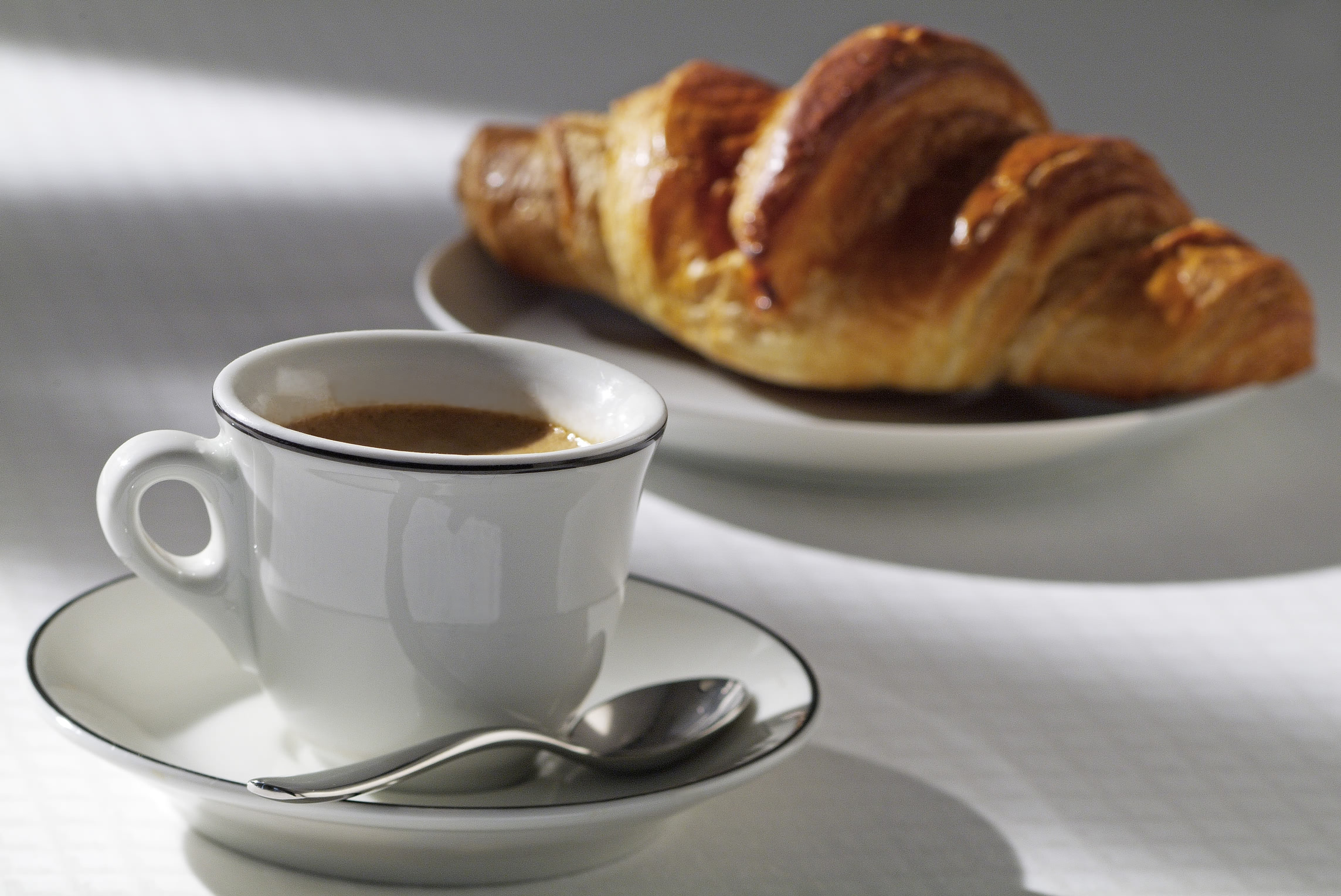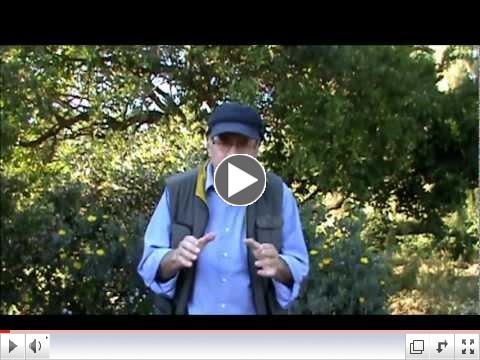|
|
|
Weekly Bible Study Review
|
|

Missed an Issue? No problem. View our Archives.
|
Class Schedule
Go to www.theocentrix.org click on the "Events" tab
for maps and more information.
|

Cafe Class
Culture Cafe
1359 N Altadena Drive
Pasadena CA 91107
Tuesdays 11:00 am
|

Read-to-Believe Class
Lake Avenue Church
Hutchins Hall Room 402
309 N Lake Avenue
Pasadena CA 91101
Thursdays 7:00 pm
|
|
.
Romans Challenge
Albert Baroody invites you
to read the book of Romans in two translations with three other people
in four weeks.

|

Arbo Class
LA County Arboretum
301 N Baldwin Ave
Arcadia CA 91007
Saturday 12:00 noon
Once per month
August 11, 2012 September 8, 2012 October 6, 2012 November 3, 2012 December 8, 2012 |
|
|
 Greetings! Greetings!
This newsletter is sent to people who attend one of Sandy's weekly Bible studies. The left column has the current class schedule. Be sure to watch for the links in each article. Clicking on them will lead you to charts, diagrams and additional articles related to your class.
Anyone can subscribe to this free newsletter by using the link in the upper left corner. If you would like to forward this issue to a friend all you have to do is click on the link below.
|
| |
 Tuesday Cafe Class Tuesday Cafe Class
Ephesians | |
Ephesians 4:17-5:20
4:17-24 Paul insists that his readers must no longer live like the pagan Gentiles do. Their thinking is futile, their understanding is darkened, and they are separated from the life of God. This is because of their lack of knowledge. Their lack of knowledge is due to their hard (resistant, stubborn) hearts. They are no longer sensitive to the things of God and instead give themselves over to things that appeal to their senses. They indulge in impurity and lust after it more and more. But the believers didn't come to know Christ through indulging in impurity and immorality. They heard of him and were taught in Him according to truth. The people who discipled them taught them to put off the old self and put on the new self. The old self was being corrupted from within, by its own evil desires. But the new self is characterized by a new attitude and is created to be righteous and holy like God Himself.
v. 25-27 Paul gives specific instructions about their new life in Christ. The believers must speak the truth and not lie to one another. He quotes Psalm 4 regarding anger. We read the entire psalm in class. It describes a man who is at peace when he lies down to sleep at night. He is at peace because even though it's hard to find anything good in the world, he trusts in the Lord to shine His light upon him and give him joy. Unresolved anger gives "the devil a foothold."
v. 28-32 Believers must not steal but instead must work to support themselves and have something to share with others. They must speak to one another in a way that builds people up and benefits those who are listening. The must not "grieve the Holy Spirit." The Spirit is working in and among them to move them toward holiness and godliness. They're supposed to work with Him and not against Him. "Get rid of all bitterness, rage and anger, brawling and slander, and every form of malice." All these attitudes are common in the unbelieving world but are not proper for believers. Instead they should be kind and compassionate, forgiving each other because God has forgiven them.
|
| |
 Thursday Read-to-Believe Class Thursday Read-to-Believe Class
Exodus
| |
Exodus 36:8-40:38
The Tabernacle was a portable sanctuary for the Lord. The Israelites used it until Solomon built the first temple in Jerusalem. Last time we read how the Israelites obeyed the command to bring all the materials that were needed to construct the Tabernacle. The rest of the book of Exodus recounts in great detail the actual construction of it. This section seems to repeat almost verbatim what we read in chapters 25-30. However, the account in chapters 25-30 is the Lord's command for the people to build the Tabernacle while the account in chapters 36-40 is the description of the people building it. Sandwiched between these two accounts are the golden calf rebellion and the Lord's statement that He would no longer travel with them because they were such a rebellious people. Moses may have felt it was important for future readers to know that the Israelites repented after the golden calf incident and then willingly donated the materials and built the Tabernacle. The level of detail in chapters 36-40 shows their willingness to obey everything the Lord commanded.
This book ends with the Lord's presence filling the Tabernacle, indicating His willingness to go with them to the Promised Land. Therefore, while it might seem a little tedious for us to read all these details for a second time, it was no doubt a very encouraging exercise for subsequent generations of Israelites to remember the forgiveness of the Lord, even after such a great rebellion.
Exodus 36:8-19 Keep in mind that all the work was done with simple hand tools and fire. There was no electricity, designing software, laser engravers, or power tools. The skilled craftsmen made all the embroidered curtains (tapestries) by hand. The curtains were joined together by gold clasps. A goat hair curtain, rougher and more durable than linen, was made to go over the top of the Tabernacle. They made a covering of ram skins dyed red and another covering of hides of sea cows (probably a durable skin like that of seals). Click to read more... |
|
Since ancient times the Bible has been read aloud to groups of people who were eager to hear the words of Life. We're really no different today. Believers still look to the Bible for wisdom and instruction. We belong in the Word together. Thank you for your participation in these classes. I hope you will pass this email on to others and invite them to attend a Bible study.
Grace and peace, Sandy Blank
|
|
|
|
|
 |  Tuesday Cafe Class (continued) Tuesday Cafe Class (continued) | |
Ephesians 4:17-5:20
5:1-4 The readers are to imitate God the way young children imitate their father. Their lives are to be characterized by sacrificial love just as Christ loved them and gave Himself up for them. Then Paul warns them about sexual immorality, impurity and greed. He equates these with idolatry. In class we discussed why greed is idolatrous. A person who is greedy, immoral or impure is putting something else in God's place. They are under the control of it and give their allegiance to it instead of to God. Paul says there should not be even "a hint" of such things in their fellowship because it is improper for God's people. Nor should there be obscenity, foolish talk or coarse joking. In class we talked about how such talk is the norm in the world today but is out of place among believers.
v. 5-7 Paul makes a strong statement here when he says, "No immoral, impure or greedy person -- such a man is an idolater -- has any inheritance in the kingdom of Christ and of God." Such people are under the wrath of God. Therefore, the believers must not "become partners with them." We had a lengthy discussion about what Paul means. Is he saying that believers who sin will not inherit the kingdom? Do believers get rid of all immorality, impurity and greed in this life? Is sinless perfection being commanded here? Looking at the context, and especially verse 7, it appears that Paul is talking about unbelievers who are practicing immorality, sexual impurity and greed as a lifestyle. He tells the believers, who used to live that way but do not live that way anymore, that they should not be partners with the idolatrous people they knew before.
v. 8-14 He goes on to say that the believers "were once darkness" but now "are light in the Lord." Notice that he does not say they once were in darkness, but that they were darkness. The difference is profound! Darkness was their identity before they came to faith in Christ. But now they are not merely in the light -- they are light. This affects the way they live now. They must live as children of light and produce the fruit of goodness, righteousness and truth. The deeds of darkness are fruitless and will be exposed by the light. "The disobedient" do shameful things in secret, but light makes everything visible. And they are the light because they are in Christ. Also, the readers are told to find out what pleases the Lord so they can do things that please Him.
v. 15-20 Paul wants the believers to be very careful how they live. They must be wise and take advantage of the opportunities that come to them because life is short. Paul tells them not to be foolish but rather understand the Lord's will. Instead of getting drunk on wine they should be filled with God's Spirit. This is how they should speak to each other-- "with psalms, hymns and spiritual songs." And silently, in their hearts, they should sing and make music to the Lord, always thanking the Father for everything in the name of Jesus.
Much more next time.
--Sandy Blank
Back... |
|  Thursday Read-to-Believe Class (continued) Thursday Read-to-Believe Class (continued) | |
Exodus 36:8-40:38
36:20 - 37:16 The wooden frames were overlaid in pure gold and supported by silver bases. They made a curtain that would divide the Tabernacle into two rooms. Only the high priest would be allowed to go into the inner room. Bezalel, the craftsman, made the ark of the covenant out of acacia wood overlaid with pure gold. It had angels on the top made of hammered gold. The table for the bread of the Presence was acacia wood overlaid with pure gold. The plates, bowls and pitchers were also pure gold.
v. 17-29 The lampstand was made from a talent of gold (about 75 pounds). A small altar for burning incense was made of acacia wood overlaid with pure gold. The sacred anointing oil and incense were the work of master perfumers. A larger altar was built out of acacia wood and overlaid in bronze. Its grating and utensils were also bronze. This altar would be located outside the Tabernacle. It was used for burning sacrifices. They made a bronze basin to hold water for ceremonial washing. It was made "from the mirrors of the women who served at the entrance to the Tent of Meeting." In class we talked about how ancient mirrors were not glass mirrors like we have today but were made of a highly polished piece of silver or bronze. It's interesting that the water basin was made from mirrors, because when you look into water in a basin you always see your reflection. Also, we noticed that Moses said there were women serving at the entrance to the Tabernacle.
38:1-31 The curtains of the courtyard were made of linen and supported by bronze bases, not silver ones like in the Tabernacle. The courtyard was twice as long as it was wide. All the posts had silver bands and silver hooks. A curtain was made for the entrance to the courtyard. Moses recorded the specific amounts of the materials they used. Keep in mind that they had to break the Tabernacle down and carry it whenever they moved during that 40 years in the wilderness. The weight of the metals alone was almost 15,000 pounds (7.5 tons) not including all the curtains and wooden posts.
The gold was a wave offering and it was used for the sanctuary. The silver was from the census in which Moses collected ½ shekel from each male over the age of 20-- a total of 603,550 men. Each of the silver bases weighed one talent or about 75 pounds. The bronze was a wave offering and was used for bases, utensils, tent pegs and the bronze altar. If we were to build the same Tabernacle at today's values it would cost more than 54 million dollars, not including labor.
- gold = 29 talents and 730 shekels (2,000 pounds) worth about $51,840,000 today
- silver = 100 talents and 1,775 shekels (7,500 pounds) worth about $3,528,000 today
- bronze = 70 talents and 2,400 shekels (5,000 pounds) worth about $28,000 today
39:1-43 The expert weavers made the priestly garments for Aaron and his sons. The ephod had gold strands, cut from hammered sheets of pure gold, worked into the embroidered linen. It would have glittered in the sunshine. Its waistband was woven in one piece with the ephod. Two onyx stones were engraved with the names of the twelve tribes and set in gold filigree settings. These were placed on the shoulders of the ephod as memorial stones. Aaron's breastpiece was made the same way, with the gold strands worked into it. They placed twelve precious stones on it and each stone was engraved with one of the names of the twelve tribes. The breastpiece was attached to the ephod with braided gold chains and tied with a blue cord. Aaron's robe was blue and woven as one piece. On the hem they alternated gold bells and embroidered pomegranates. Aaron and his sons wore fine linen tunics. His sons wore sashes and headbands, but Aaron wore a linen turban. A gold diadem engraved with the words, "Holy to the Lord" was placed on the front of the turban. It was fastened with a blue cord. When the work was all finished the craftsmen brought everything to Moses for his approval. "The Israelites had done all the work just as the Lord had commanded Moses." After he inspected all of it Moses blessed them for their obedience.
40:1-33 The Lord told Moses to set up the Tabernacle on the first day of the first month in the second year of their calendar. The Israelites completed the Tabernacle during their first year after leaving Egypt. The Lord gave detailed instructions about the order in which everything should be put in place. The ark of the covenant must be put in the tent and shielded with its curtain. Moses put the stone tablets in the ark. Then he put the table, the lampstand, and the altar of incense in place before setting up the outside curtain on the tent of meeting. Next the altar of burnt offering was positioned at the entrance to the Tabernacle with the bronze basin near it. Then they set up the courtyard and anointed everything with the sacred oil. Moses brought Aaron and his sons to the entrance of the tent of meeting, washed them with water, and dressed them in their sacred garments. He anointed them as priests. This was the beginning of the Levitical priesthood. "Their anointing will be to a priesthood that will continue for all generations to come." Moses did all that the Lord commanded. All their work was finally finished.
v. 34-38 Then something amazing happened. The cloud that had been leading them covered the tent of meeting "and the glory of the Lord filled the Tabernacle." Moses could not enter the tent because of the glory of the Lord. From that day on, whenever the cloud lifted from above the Tabernacle the Israelites would break camp and move on. But if the cloud did not lift then they would stay where they were until it lifted. "So the cloud of the Lord was over the Tabernacle by day, and fire was in the cloud by night, in the sight of all the house of Israel during all their travels." So we see that even though the Lord had threatened not to go with them He was in fact with them in a visible way throughout their years in the wilderness. He had not abandoned them in spite of their rebellion.
This concludes the book of Exodus. Next time we'll begin reading Deuteronomy.
-- Sandy Blank
Back...
|
|
|
| This newsletter is maintained by Sandy Blank (Ph.D. Educational Studies, Biola; MA Biblical Studies, Grace University). If you would like further information about any of her classes or would like to know how to start a Bible study in your area please contact her at sandyblank@theocentrix.org. This newsletter is sponsored by Theocentrix, Inc., a 501(c)(3) nonprofit organization dedicated to promoting God-centered Bible literacy. Visit www.theocentrix.org for more information. |
|
|